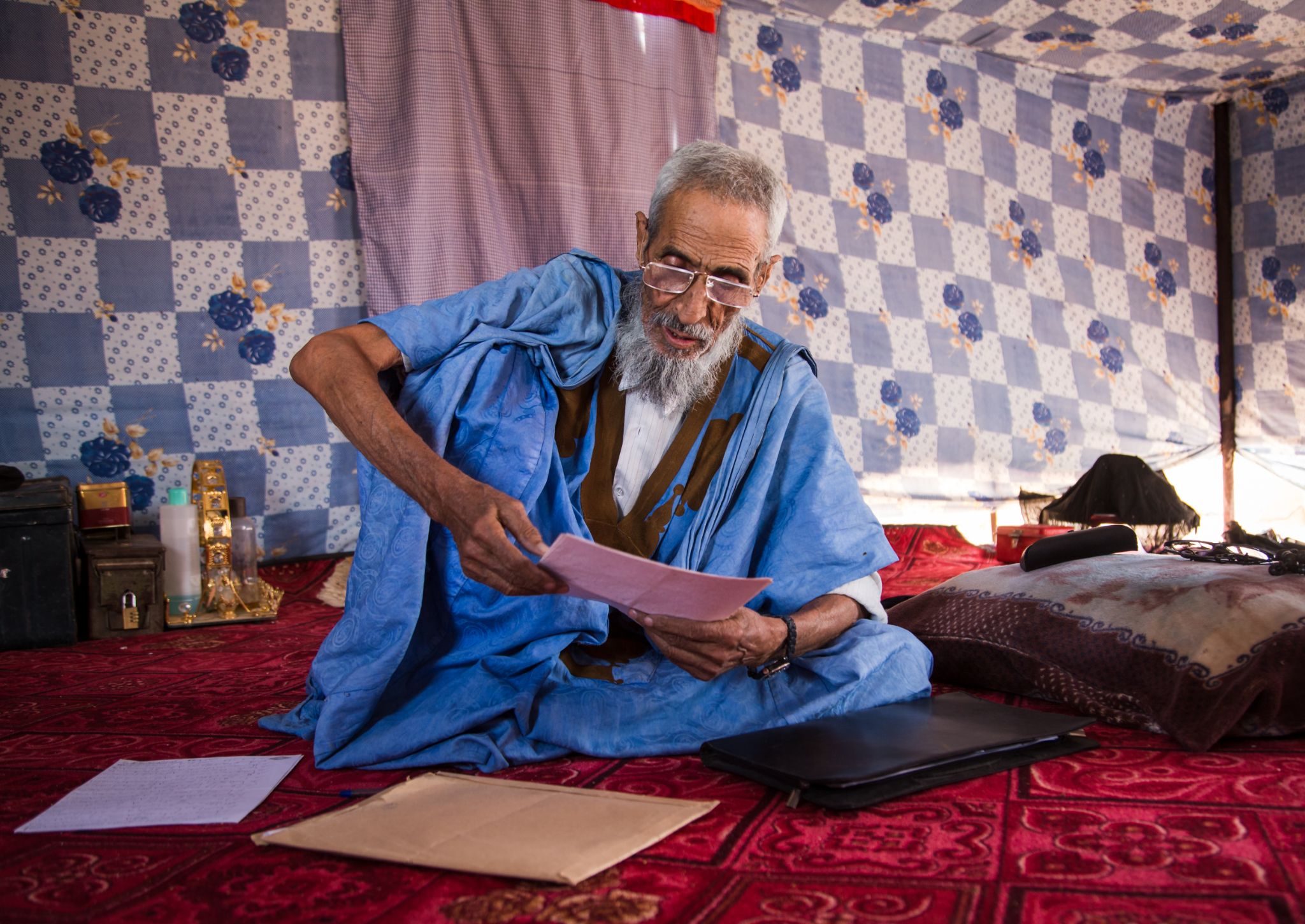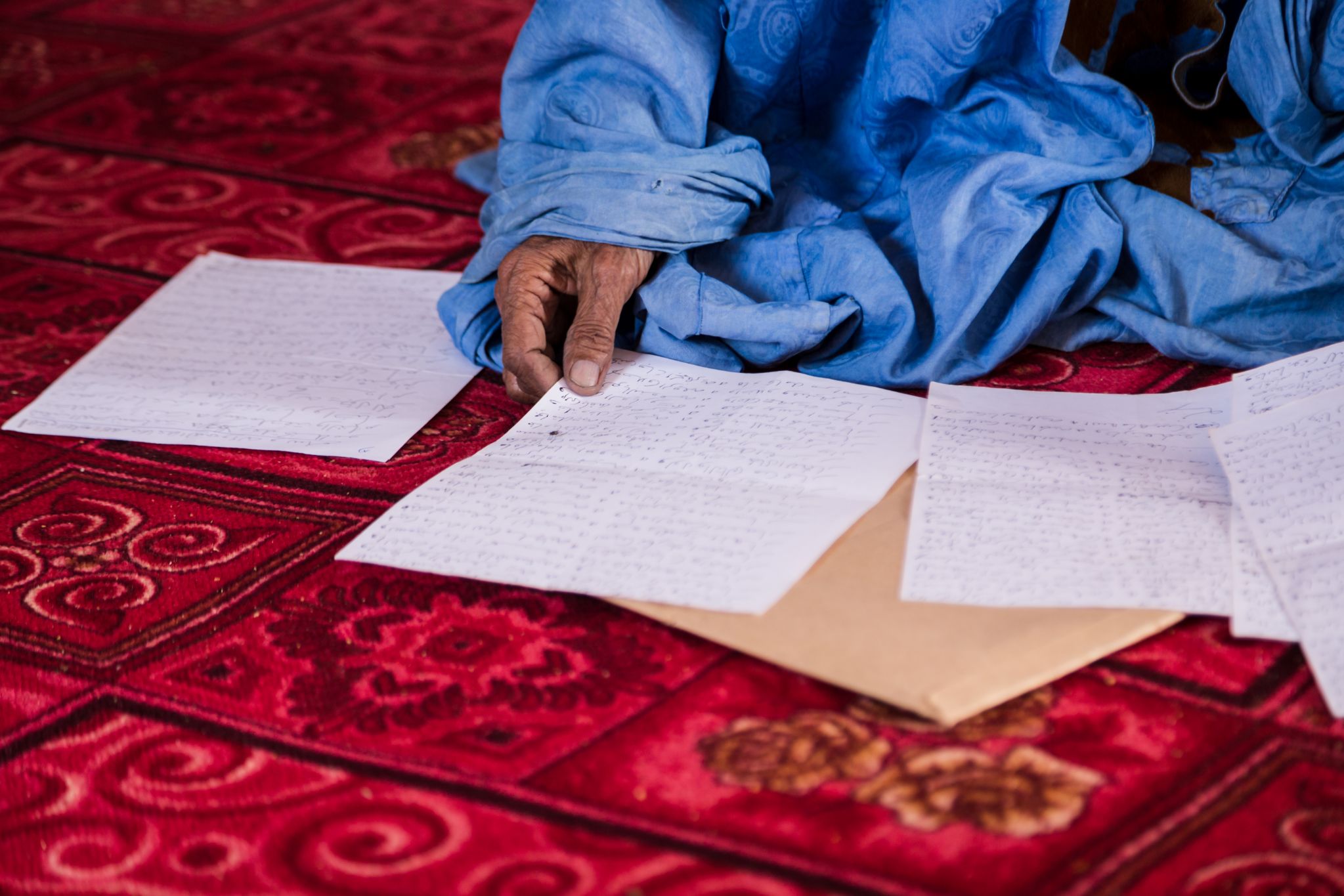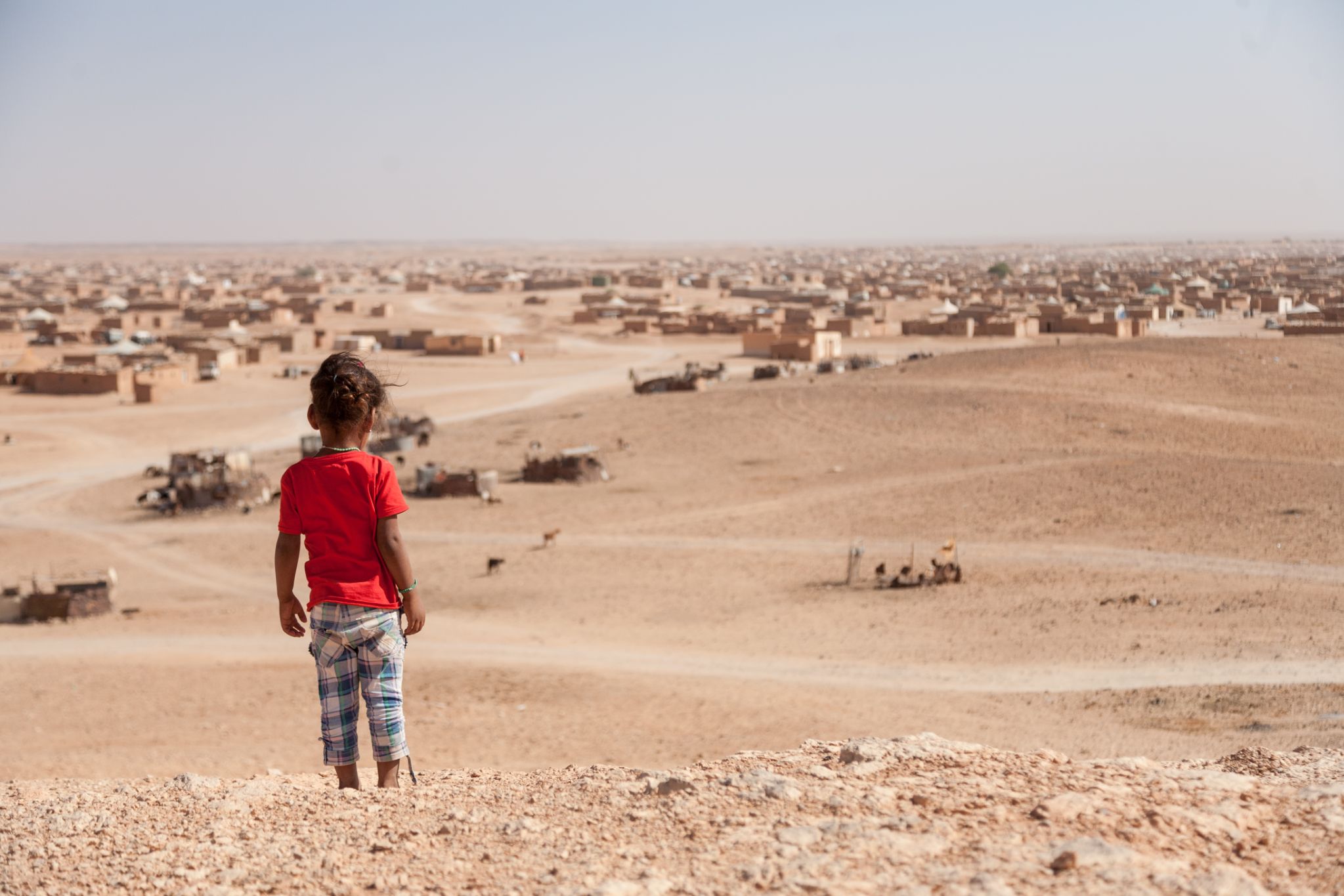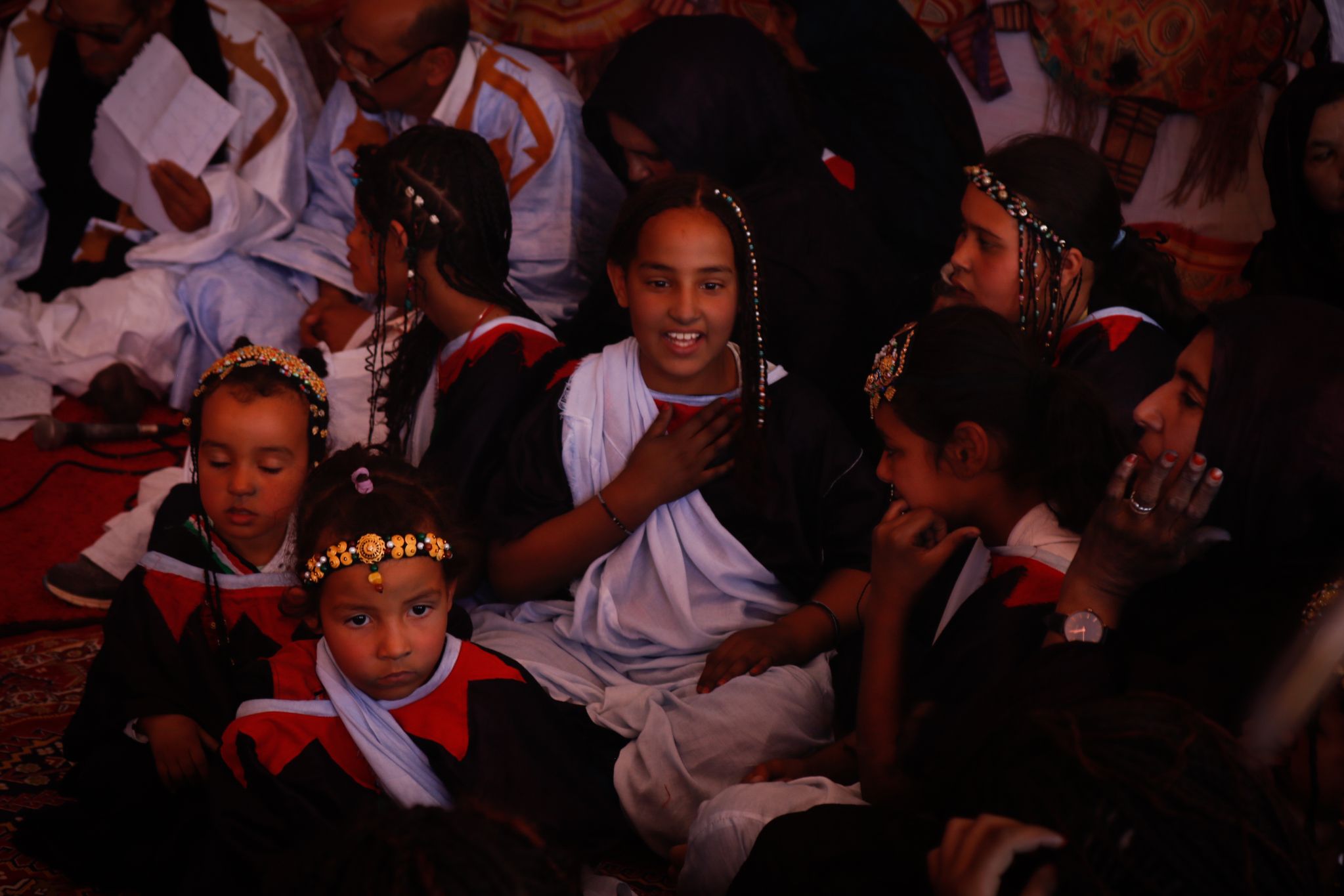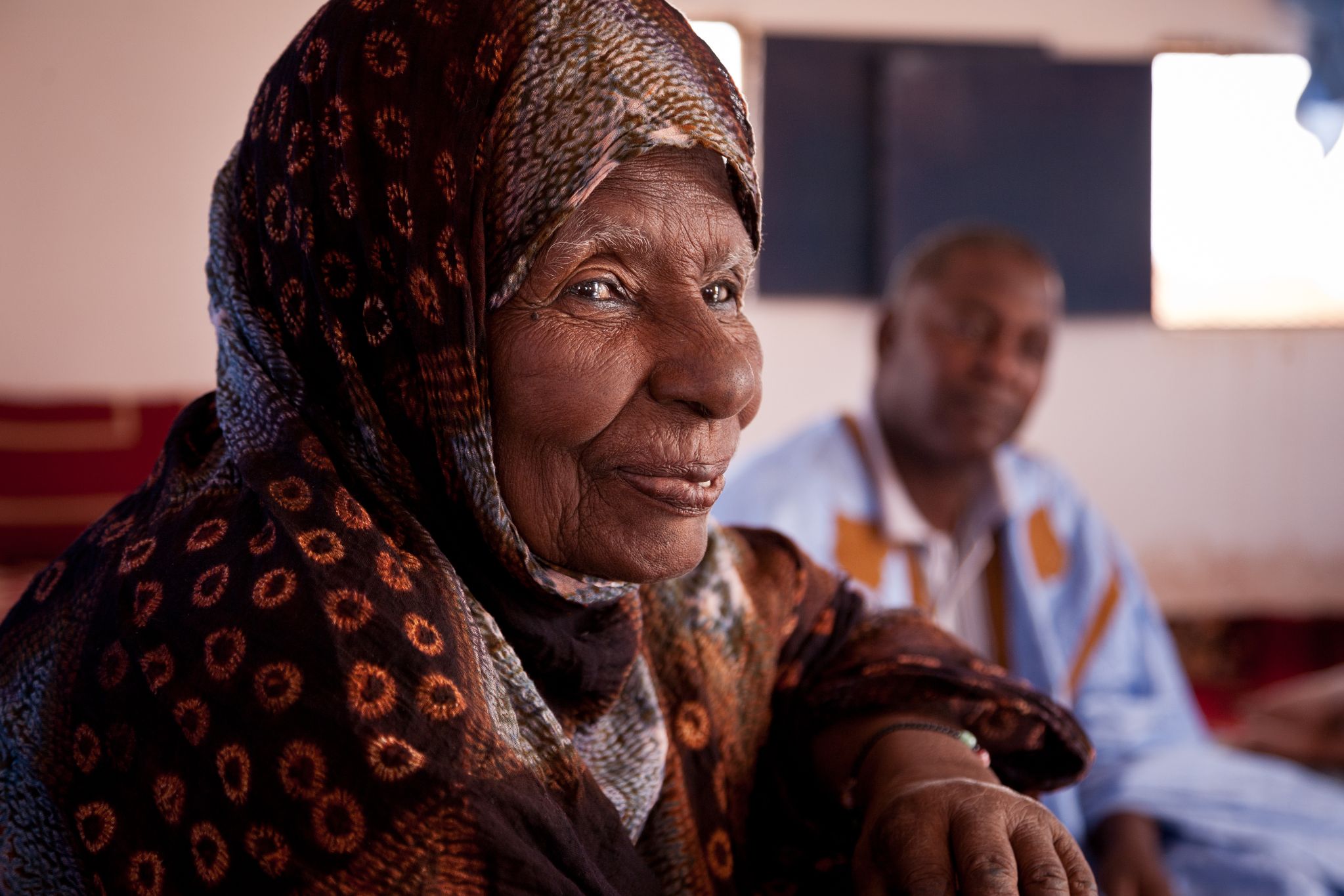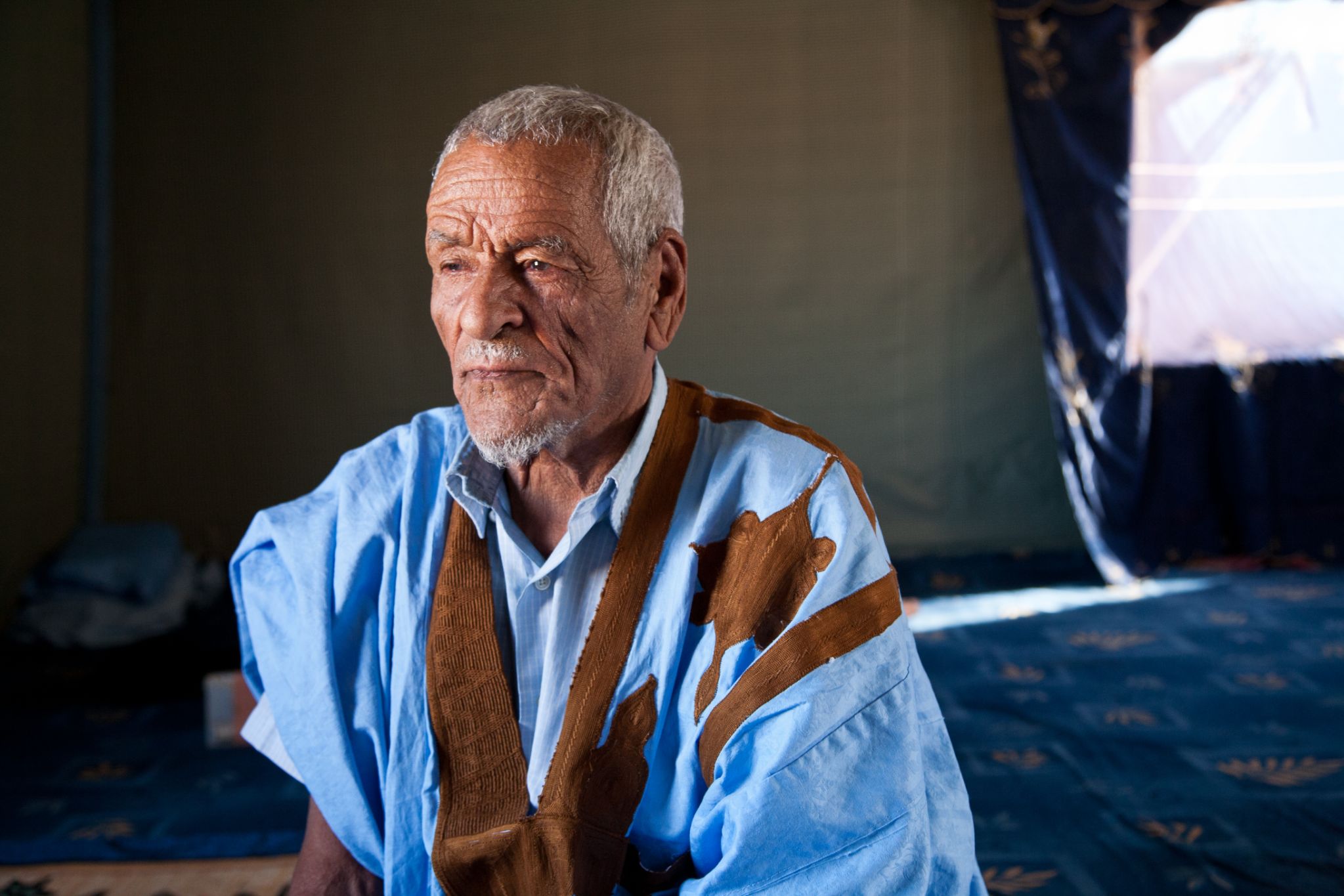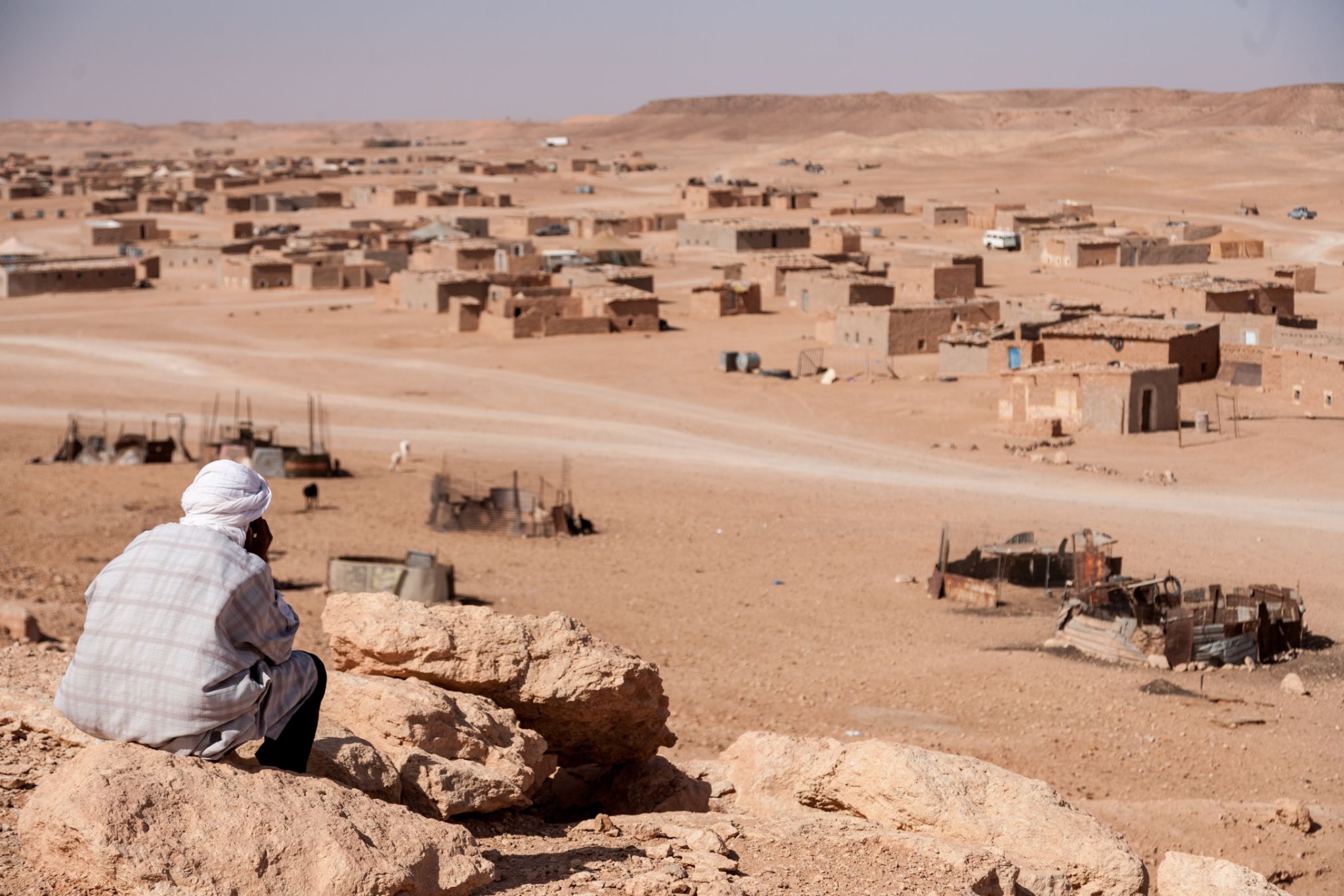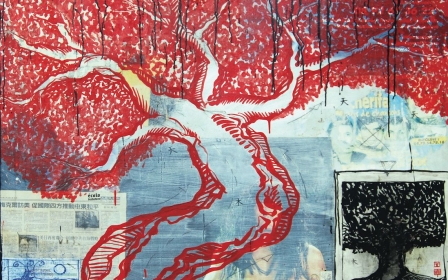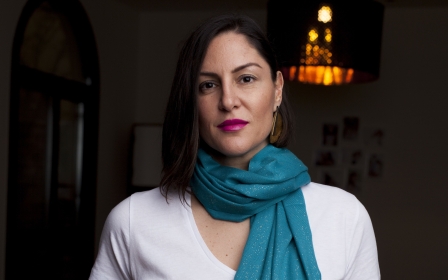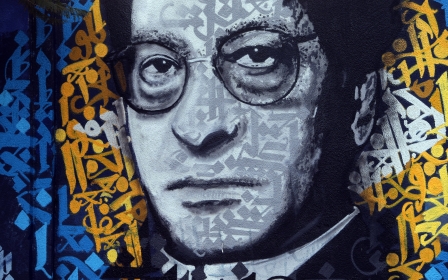Voices of a lost homeland: The poetry of Western Sahara
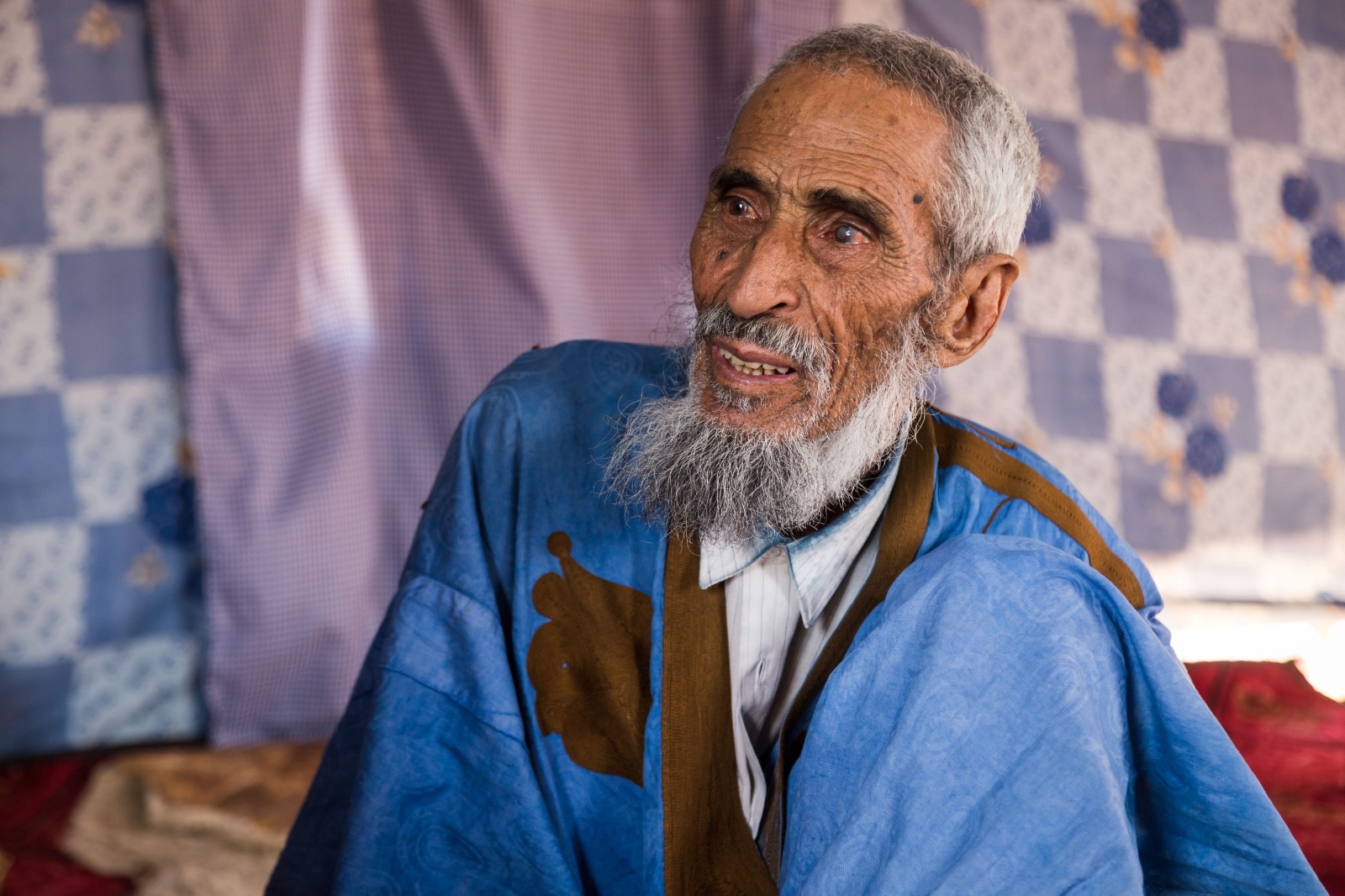
It’s been almost a year since Western Saharan poet Mohamed Mustafa Mohamed Salem, popularly known as “Badi” died, aged 83. His death elicited few obituaries, but the legacy of his poetry continues to inspire younger generations so far removed from - and with no memory of - the homeland he writes about.
Badi lived the latter half of his life in the refugee camps around Tindouf, an arid region of Western Algeria. Like thousands of other refugees, he fled his home following the 1975 Moroccan annexation of Western Sahara.
Living in the camps, with their limited resources and geographical isolation, meant restrictions on the publication and distribution of his poetry in written form. But it survived through years of recitation.
Saharawi poetry itself, composed in the Hassaniyah dialect of Arabic, is little known beyond its own people. In the occupied territories it is often repressed, along with other Hassaniyah cultural endeavours.
New MEE newsletter: Jerusalem Dispatch
Sign up to get the latest insights and analysis on Israel-Palestine, alongside Turkey Unpacked and other MEE newsletters
According to Amnesty International, in 2019 in Western Sahara, “the authorities harassed journalists, bloggers, artists and activists for expressing their views peacefully, sentencing at least five to prison terms for ‘insulting’ public officials and apparently targeting others with spyware”.
The dangers for poets there are shown by the experiences of Hadjatu Aliat Swelm, who published poems on websites pseudonymously. After her identity was discovered, she says she was subject to what she calls “pressure” of frequent police raids and being followed in the streets. In 1999, she chose to make herself a refugee rather than disappear, as has happened to many others in her situation.
These words of an oral language have been almost forgotten; their recital in poetry is itself an act of resistance
Badi’s poem Tishuash recreates with a melancholic beauty the traditional life of the Bedouin, which many Saharawi have never known. Tishuash is a paean to a lost lifestyle. The title means, roughly, “the pleasure of remembering things that are past”.
It is replete with words which even local translators had to ask about; words like srei, meaning “the travelling done before dawn”, torda, which is “a small hole dug where water lies close to the surface after the rains in the middle of a valley”, or as’geig, the “water that forms in pools on concave rocks in the path of a dried-up river”.
These words of an oral language have been almost forgotten after 45 years of forced settlement, and thus their recital in poetry is itself an act of resistance. They are the Inuit’s apocryphal “hundred words for snow” and an interesting challenge to translate.
However, the act of remembering these lost places and lost knowledge was, for Badi, almost the equivalent of a holy duty. As he says in his poem Landscape,
after all this pain,
unable to walk in L’juad,
know that to say these places’ names in praise
brings them closer to the All-Merciful.
‘Sweet life full of living’
Born as a shepherd in the city of Aoserd in 1936, Badi learned poetry and song from women in his area. He travelled in Algeria, Libya and Mauritania, and after a drought robbed him of his flock, he joined the Spanish army.
After the formation of a unifying Saharawi independence movement, the Polisario Front, Badi joined its new “Saharan People’s Liberation Army”, but his penchant was never for the political poetry of war.
According to his daughter, Sumaya Mohamed Salem, Badi “could not write what people wanted him to write”. As Badi once said: “Poets explain humanity and what it is to be human. The true poetry should be close to truth, honest to what you feel and true to yourself.”
Mohamed Salem said that there was much she did not know about her father: “One strange custom we have is that we cannot talk with our parents about anything. We cannot ask their opinions on things or their true feelings.
“Badi was more open-minded than most, but still he was very strict about customs. He was very resistant to anything new. For him the youth were the enemy, more than the Moroccans.”
Tishuash is about the desert nomad’s 'sweet life full of living' which his daughter’s generation have never known
Mohamed Salem has very little connection with the land about which her father wrote so movingly.
In 2011, she joined her father on his trip to what the Saharawi call Al Bedir, literally the “countryside”, but meaning the “liberated zone” - the eastern 20 percent of the territory of Western Sahara which was not cordoned off by the “berm”, Morocco’s heavily mined and intensively patrolled 2,700km defensive wall, which was completed in 1987.
Badi cried to see the homeland again but his daughter says she did not feel anything: “Western Sahara to me is like Paris or Berlin - somewhere I have heard of but never been.”
Written after his trip to the liberated zone, Tishuash is about the desert nomad’s “sweet life full of living” which his daughter’s generation has never known. The poet is transported back to this life through his memories of its sights, sounds and smells, rather like how, in a different time and place, John Keats was transported by the song of the nightingale.
Sensory memories place Badi back in this lost world, but when he gets so close that he can “smell that animal hide next to the spit / and see the clean bones beside that hide”, this image of death abruptly ends the imaginative journey. He reaches the same realisation that Keats did, when he was forced to acknowledge that, “the fancy cannot cheat so well / As she is famed to do, deceiving elf”.
Back in the present, Badi asks into the void, “how come, my brother, you do not remember this?” He answers for the reader:
It is no longer with us,
and if tishuash could bring it back
it would add tishuash
to the tishuash
of my tishuash.
Yet Badi’s tishuash does bring back something. It revives the loss, in two senses. It re-opens the feeling of deprivation, but also gives life again to that lost lifestyle for the short time of the poem’s telling. We hear it in the “sound of the swishing of camels' tails / before the sun has risen to our eyeline”; feel, with the poet, “the wet sand” on which he sleeps “at the mouth of a well”; and taste his tea, flavoured with desert herbs.
His poetry preserves practices, language and customs that are alien even to his daughter, who speaks “Rabuni Hassinayah” (the language of the camps, not the language of Western Sahara).
Like the traditional poetry from before the war, there is function as well as aesthetics to the composition of his work - preserving and passing on knowledge. Yet, because of the rupture that happened between generations, even his daughter says, “I do not understand his poems.”
Poetry and song
In February this year, a cultural celebration was held at the Western Sahara refugee camps in Tindouf. The annual event, marking the anniversary of the Polisario’s 1976 declaration of the Saharawi Arab Democratic Republic (RASD), was hosted by the Ministry of Culture of the Western Saharan government-in-exile. For five hours, poets recited their work in a “cultural tent”.
“It is not every day you get to see all the great poets, especially the old ones,” says Mohamedsalem Wared, a 35-year-old Saharawi activist who was born and raised in the camps. “It speaks to me as a human and as a Saharawi. I feel more represented in poetry than in anything else.”
As a largely pastoral, nomadic people, poetry and song (the two are so closely linked that the Hassiniyah word leghna means both singing and lyric poetry) traditionally served vital functions in the life of society.
Like most oral poetry, theirs was composed according to strict metrical and formal rules, which have remained more or less unchanged for centuries. Poems must have two half-lines (teefelwatan), with a rhyme at the end of each. The rhymes that a poet has chosen then set out what sort of rhythm the poem will follow.
Before colonialism, cultural tents had practical functions, such as remembering and passing on names of places and practices
As Polisario minister and researcher into Saharawi poetry, Mustafa El-Kattab, explains, “the type of vowels used in each half-line determines the choice of metre for the poem”.
The cultural tent that Wared attended recreated the social aspect of gathering, listening and appreciating verse. Before colonialism, it had more practical functions, too: remembering and passing on names of places and practices that served the goat- and camel-herding people of the desert; retaining folklore, wisdom and mores; and providing a means of interacting with other “tribes”.
Unlike in neighbouring Mauritania, the status of poet has not been (at least in living memory) a caste occupation. Some poets are born into families of poets, others pick it up from listening and learning the craft. It is not a gendered role either: both women and men are poets.
In the 1970s, everything changed. A growing independence movement united the “tribes” as one people of the Sahara - the Saharawi - and was pushing for self-determination from Spain, similar to that which had already been granted neighbouring Algeria and the states of former French West Africa.
Despite UN recognition of the Polisario Front, a Spanish promise of a referendum and a ruling by the International Court of Justice, after the death of longtime Spanish dictator General Francisco Franco in 1975 the territory was passed over to Morocco and Mauritania. War broke out, which lasted until a ceasefire in 1991.
In this time, Saharawi poetry changed dramatically too. It retained its same form and structure, but the content was completely different. A new genre sprung up, which El-Kattab terms “socially committed poetry”.
Mabrook delivers her poetry with drama and force; all of it 'for the revolution'
Al Khadra Mabrook, now in her 80s, says that her own poetry underwent this change, moving from poetry that mainly “celebrated female beauty”, to the poems that gave her the nickname, “poet of the rifle”.
In one of her best known poems, rather than celebrating beauty, she celebrates the sight of a new Soviet tank acquired by the Polisario’s guerrilla army. She ends by addressing the enemy:
Pillagers! Know that this tank will be merciless to its enemies
And will blast to dust the invaders and all their machinery
From the outbreak of war, her work had “only one focus: to inspire and encourage, to praise an army which rescued people who were in danger, at great risk to themselves”. She herself is one of roughly half the Saharawi population who, fleeing the war in 1975, were “rescued” by this army and are now living in the refugee camps near Tindouf.
Mabrook delivers her poetry with drama and force, and all of it, she said, “is for the revolution”.
Poetry of war
The Saharawi poetry of the war years has a unique vibrancy, a sense of humour and is direct and purposeful. Yet, in some ways, it is frozen in time, belonging to a period that cannot be recreated and inspiring in its younger listeners not just a sense of the glories of togetherness, victory and sacrifice, but also feelings of shame or inadequacy for growing up in less heroic times.
Mabrook’s work has been spread by her granddaughter, Spain-based singer Aziza Brahim, who set her grandmother’s poetry to music. The late Mariam Hassan, who remained living in the camps and died in 2015, also had international success and recorded three studio albums, which contain songs created from Saharawi poetry.
However, Saharawi poetry’s distinctive history and the geopolitical conflict, from which it is hard to disentangle the poems, have not helped its dissemination.
And, according to poet and librarian at Polisario's Ministry of Culture, Mahmoud Hadri, finding an Arabic publisher willing to publish Sahrawi poetry can be a challenge, so it remains mainly the preserve of the people from whose lives and struggles it emerged.
Yet, for those people, poetry remains invaluable. During the war, poetry’s role in society was clear. A few years before his death, the late Beyibouh El Haj said: “The time of fighting and liberation was the time of poetry’s flourishing.”
Like many Saharawi poets, he saw his poems in military terms. Poetry was “a weapon to reveal the true face of Morocco … no missile can destroy it”.
After decades of uncertainty, exile and continued oppression in the homeland - last year a woman was killed and scores injured in a violent crackdown during celebrations of Algeria's victory at the Africa Cup of Nations - the problem today is: what can poets write about now?
One of Beyibouh’s later poems, To the Young People, directly exhorts a generation born in exile not to abandon the fight for independence:
young people, listen,
I don’t mean to be critical,
but why do you turn your back on the homeland?
The poems Wared heard at the cultural festival felt “directed at me, whether they were talking about what people went through in the war, or telling my generation that we have not done enough”.
A poet of a similar age to Wared is Nadgem Said. He says he tries to use his poetry “to contribute to the cause”. Educated in Libya and Algeria, his Poem on the Duty of the University Student tries to take up Beyibouh’s exhortation to action in his own appeal to his peers (and himself):
Give voice to what you have learned:
describe the pains of your suffering race,
the abuse and agony that became common place
while the world’s eyes were turned.
Badi was a great friend of Beyibouh, yet his nostalgic poetry for the land and a lost way of life also has provided inspiration for a new generation, in a different way to Beyibouh’s poetry from the war.
Badi was strongly anti-modernity. When wi-fi was installed in the camps, he was convinced, “now we are not going back to our land”. He was disdainful even of modern poetry, which, his daughter says, he dismissed as “fast food”, something which “fills you up but does not nourish you. It is simply made for celebration”.
Yet, despite this, she observes that “Badi’s best poetry is universal because it is so particular. It is honest and true to his life and so the listener finds themselves there with him”.
In the face of what US academics Stephen Zunes and Jacob Mundy call “a slow genocide”, where over the course of four decades “Moroccan policies have aimed at the symbolic erasure of the Western Saharan nation”, poems like Tishuash preserve a way of life and identity.
In remembering and recreating the lifestyle of his generation, when as nomadic pastoralists they were intimately connected to the land from which the people took their name, Badi’s poems helped the new, digitally connected Saharawi feel grounded in something that is distinctively theirs and belonging to a place, even though they have never been able to visit it.
A collection of Sahrawi poetry, Settled Wanderers, is available from Influx Press, translated by Sam Berkson, in collaboration with Saharawi artist Mohamed Sulaiman, with an introduction by US academics Stephen Zunes and Jacob Mundy.
This article is available in French on Middle East Eye French edition.
Middle East Eye delivers independent and unrivalled coverage and analysis of the Middle East, North Africa and beyond. To learn more about republishing this content and the associated fees, please fill out this form. More about MEE can be found here.


